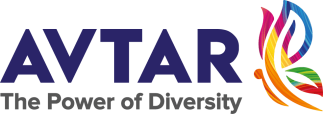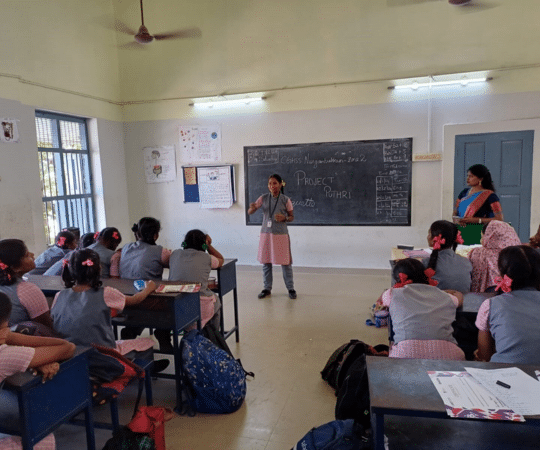We have heard about stories of women taking a break to prioritize domestic needs. Here is the story of Suresh Stephen (53), who is not just an exception to this norm of a woman choosing to be a stay-at-home parent but also an example to emulate for those wanting to design their professional lives. He demonstrates how one can and must factor in demands of different roles— as a parent, son, and spouse– as he took up flexible working and focused on reskilling and upskilling during a 10-year hiatus from his corporate job.
With a Masters in Social Work from The Madras School of Social Work, Suresh, who began his career as a generalist HR, has been associated with brands like Sanmar and HCL in India and Singapore.
Amid an eventful career across locations, deep down Suresh always wanted to be a ‘hands-on parent’ for his son Nischinth– a thought he shared with his wife Kavitha also an HR professional.
He says, “My wife and I were always clear that we guide our son’s development in an accepting but steady manner while fostering a climate in which cooperation, fairness, equality, and mutual respect between parent and child are assumed. Both our parents were also getting on in age, and not being there during their sunset years was not an option we were ready to consider. However, this required that one or both of us needed to get creative with our career moves. We discussed the pros and cons and realized that while this may require us to take a temporary hit from the context of careers and the economics of the decision, it was somehow a no-brainer from every other angle.”
Amid a hectic schedule at work, some incidents prompted him to steer towards the decision of taking a break from the regular career — one was leaving behind their little one at a day-care center in Singapore for long hours. “When my wife and I first moved to Singapore, our son was just three years old, and since we both were working full-time, we had to leave him at the place every morning at 7:30.a.m and only got back at 6:30 pm after work to pick him up. It was a new environment for all of us. It must have been a challenging time for him as well – he was the only Indian kid amongst a whole bunch of Chinese and Malay kids in a strange new country, learning to communicate in a new language and having fishball noodles for lunch.”
In 2007, while working as a talent acquisition leader in GE Hyderabad, he was approached to head an RPO by WIPRO. With his family in Chennai, it was just the opportunity he was waiting for, though the couple hadn’t decided about who would take the break.
“So, when I got an opportunity to work as an external consultant for Wipro and run an RPO (Recruitment Process Outsourcing) operation on a multiyear, “Build-Operate-Transfer” Mode, I threw in the hat, left my job with GE and started my firm, out of our home-office in Chennai.”
Deciding to quit a corporate job at a time, when lifetime employment was considered the wisest thing to do, he did leave some uncles and aunts in the family stunned. To counter their barrage of queries he had a flexible option— an alibi (as he calls it). And the off-beat path yielded the much-anticipated result— time and memories with near and dear ones that he wouldn’t trade for anything else.
“I had already lined up with the RPO assignment, and so it was not too bad. I used to initially do three days in Bangalore and the rest of the week in Chennai. Once the operation became steady and I had a team in place, I traveled on a need basis only. The biggest lesson I learned from this experience was that the time spent and memories made during this period will always be well worth it,” he says.
Suresh worked on this flexible model for approximately a decade. Meanwhile, he stayed updated and tuned to the field, focusing on expanding his skill set.
“When you decide to take the plunge and become a stay-at-home parent who intends to get back into the workplace after putting in the time, investing in reskilling, and upskilling is critical. You need to constantly keep abreast and stay in step with new skills to keep you relevant in the talent marketplace. I spent time reading anything I could get my hands on — industry-related white papers, research on best practices, and personal development books. I watched YouTube videos, and endless runs of TEDx talks, and speaking to network connections in the field,” he adds.
When their son was in the 9th grade and was mulling over pursuing an undergraduate degree at a university in the US or Canada, Suresh inspired his wife to take a similar route. She decided to throw in the towel and help him with the small Consulting firm. Undertaking turn-key HR assignments for a few SMEs also enabled her to spend more time with her son.
Almost a decade after the break, when Nischinth left for Canada to pursue his under-graduation in Economics at the University of Toronto, Suresh decided to revert to his corporate role.
“It was around the same time that the 2015 Chennai Floods devastated our home, and I lost both my parents. I decided it was time for the next phase in my career and life in general. A good old friend called up and said he was looking for someone to manage a Talent Shared services operation for EY out of Kerala, and I grabbed it,” he recounts.
He credits EY’s DEI initiatives for getting back on track in no time.
“Having been an entrepreneur, I had to rewire a bit, but I believe that stint helped me bring competencies and transferrable skills into the workplace successfully. I have been lucky to work with leaders with a very similar, broad outlook as myself, and I have an amazing team that I have had the privilege to lead through some very challenging growth challenges, and so the re-entry could not have been better,” he adds.
Now based in Kerala, Suresh and his wife have channeled their complete focus on their careers, with their son set to begin a stint in brand, marketing, and communications. He says that he and his wife don’t talk shop as far as possible, adding on a lighter note that they now have to only look up Nischinth occasionally to ensure that their ‘investment’ is doing well.
Suresh reckons that the landscape has changed since the time he made the move and that companies have since realized that building a workforce for the future means recognizing that the employer and employee model itself needs to change.
“People are looking for more flexibility in the workplace and the pool of contractor workers around the world continues to expand. Advancement in workplace technology has also enabled freelancers to access job opportunities that allow them to work remotely, giving them more flexibility and freedom in their professional careers as they support on-demand work,” he observes.
Plan and prepare before the plunge
Suresh gives a lo-down of suggestions to those trying to tread the same shores.
Understand the Marketplace: The context has changed in the last couple of years, and thinking about having a flexible career option is no more a choice – rather a certainty in the near-medium term. We need to understand that the definition and context of a job will be re-defined in the future. (A good analogy to get the point through would be to look at the UBER Model – Freelancing, Entrepreneur/self-employment models within a job ecosystem, where a task is delivered by persons who work in employee-entrepreneur models). So, my advice would be to not only accept but also embrace the new normal, up-skill, update your LinkedIn profile, and keep networking.
Have a Plan: Take stock of your finances and revenue stream for the duration and have discussions with counselors in your current organization and explore options to flexi-work. There are chances that in the war for talent, many organizations would be willing to consider flexi-working options rather than losing key talent.
Stakeholder Buy-In: Have a free, fair, and frank discussion on your intentions with your spouse, partner, or any other stakeholder, including a boss or counselor who is going to be directly impacted by your decision.
Always be skilling: Being a stay-at-home parent is one of the toughest jobs you will ever have, and the skills you gained are incredibly transferrable— skills including multi-tasking, communication, persuading, listening, research, organization, managing people, collaboration, and the ultimate mom skill—negotiation. I get reminded of Jack Welch’s words: If the rate of change on the outside exceeds the rate of change on the inside, the end is near.
Plan your re-entry: Account for your sabbatical as a stay-at-home parent, and craft a resume that brings out the learning while including activities such as volunteer or community involvement, continuing education courses, freelance projects, professional development, or self-employment you may have had during your break from your career.
Make no excuses: Keep a positive mental attitude, have a sense of pride and purpose in what you did, and always remember— pattern breakers are people who demonstrate courage, communication skills, and creativity.






